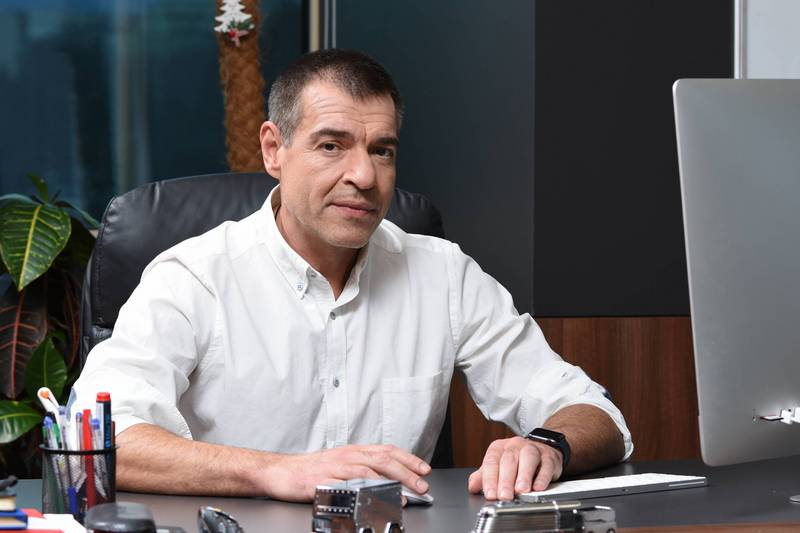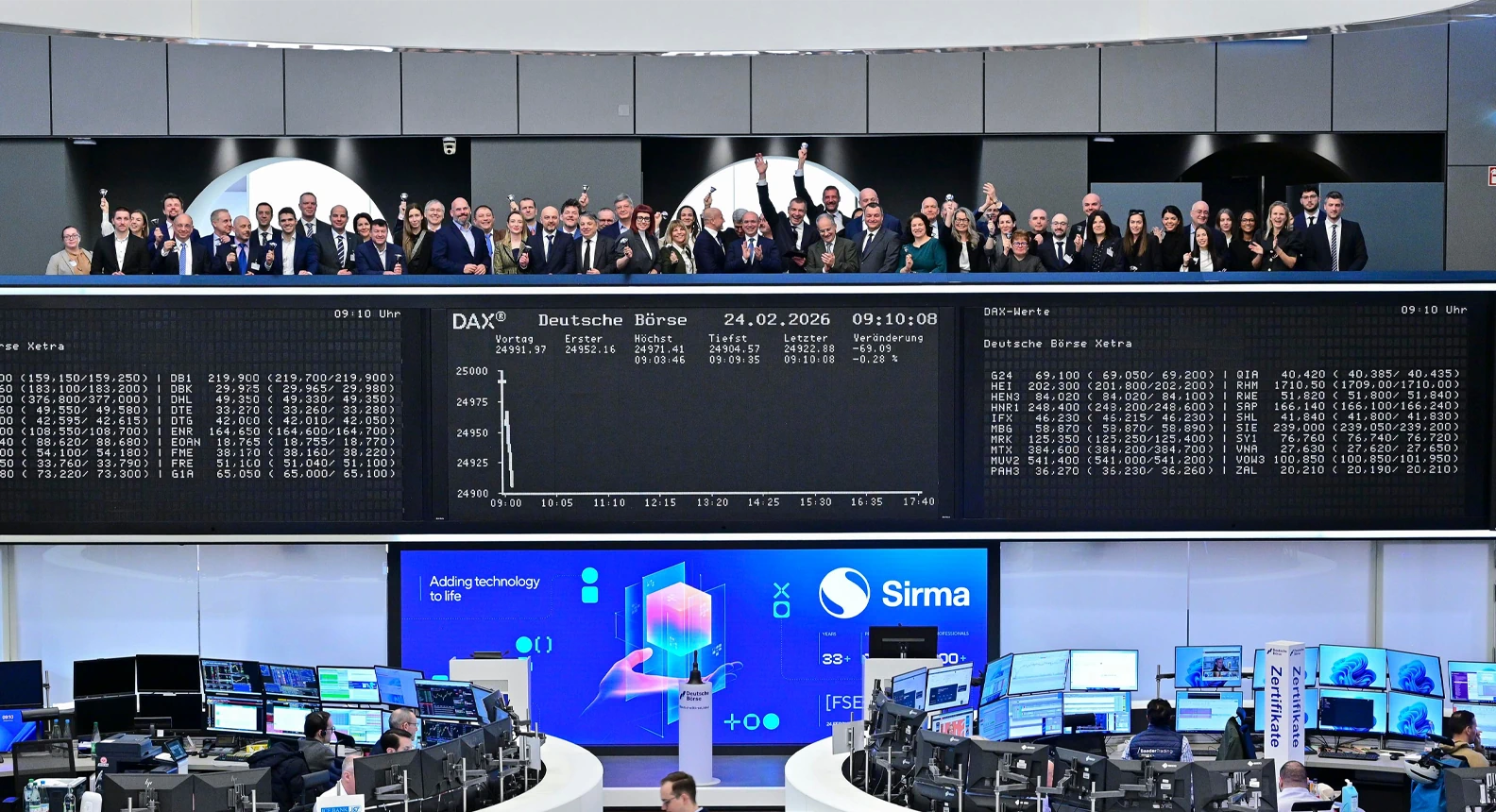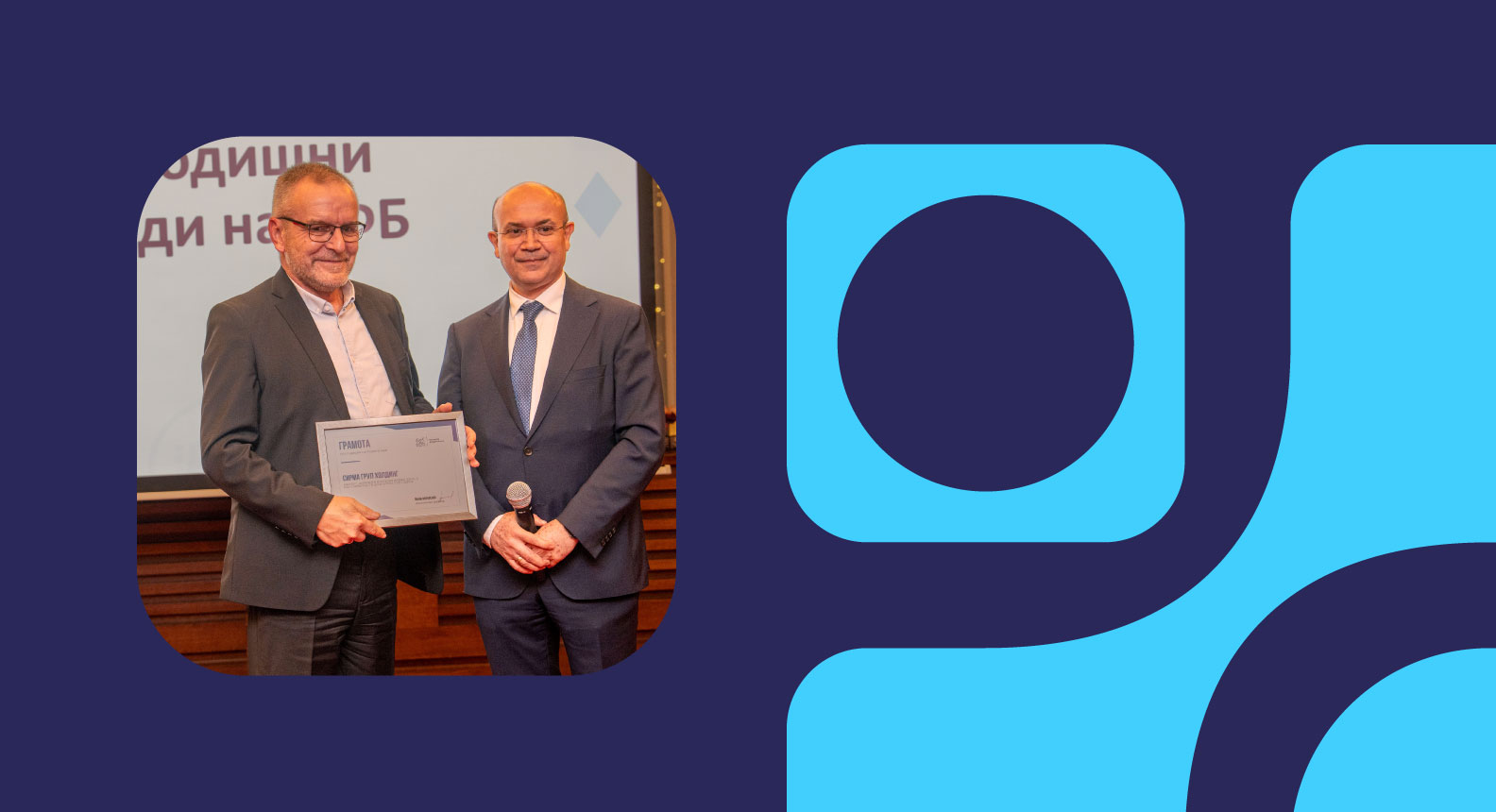The questions were put to the Chief Executive Officer of Sirma Group Holding JSC – Tsvetan Alexiev.
Mr. Alexiev, Sirma Group Holding (SGH) has just published its consolidated financial reports for Q3 2022. The deal for selling the majority stake in Sirma AI(SAI)was finalized in the third quarter. We were all surprised to see a consolidated loss for the period. What is the cause of this loss?
Yes, we are certain that this will be the most asked question in the coming days.
Already at the annual general meeting of the shareholders in June this year, when we decided to sell our shares in Sirma AI (the business combination), it was clear that this would bring a purely accounting loss for the group since the value accumulated over the years of the investment in Ontotext (subsequently Sirma AI) exceeded the otherwise quite good market price, which we achieved in the sale.
Sirma AI is a product company that requires increasingly significant investments in development, marketing, and a very well-trained and expanding sales force. And all this is necessary for the company to be able to compete with similar products of Amazon, Microsoft, Oracle, and many other lesser-known names. Our major competitors have invested at least $200M in technology development over the past five years. Something we cannot achieve and thus risk losing the value already created in this company. This is even more so in the current situation of generally falling valuations of product companies worldwide.
Indeed, we did not manage to nominally cover the value of all our investments in the company over the last twenty years. Still, we did acquire a significant amount of cash resources, which, on the eve of an economic crisis of uncertain length and depth, gives us peace of mind and opportunities for subsequent investments in a depressed market. And we plan to grow organically over the next 4-5 years and through more acquisitions.
In addition to the direct negative effect of the business combination for about BGN 6.5M, there is also an indirect negative effect of BGN 2M in the form of impairment of an asset in the balance sheet of SGH, mainly used in Sirma AI’s activities until the sale. Separately, the company Sirma AI, which we consolidate for the first eight months of the year during which we control it, realizes a loss of over BGN 0.9 million due to significantly increased investment costs related to the upcoming business combination.
The operational business of the group (without Sirma AI, the business combination, and asset impairment) has a consolidated profit for the nine months in the amount of over BGN 3.6M. This is a decrease compared to BGN 4.9M (without Sirma AI) for the same period of the previous year due to the disproportionate increase in remuneration costs (at the same time substantial indexation and fighting the ongoing competitive pressure from the market) and external services. Some of our companies suffered this year due to withdrawn projects by foreign clients (mainly from Germany) in anticipation of the coming crisis. We expect some of these adverse effects to be offset by the year’s end.
Mr. Alexiev, could you define the main advantages of Sirma Group Holding over other public companies on the Bulgarian Stock Exchange (BSE)? With what does your company attract investors?
Here are a few reasons that our investors share with us:
First reason: We are currently living in crisis. We exit one and enter the next. This puts companies in almost all segments of the economy to the test. At the same time, the world sees the IT industry (rightly or wrongly) as a panacea for all crises and their consequences. Such was the case with the COVID crisis, where cloud technologies provided much-needed remote connectivity. It is the same now with inflation and slowing economic growth when everyone sees digitalization as a “cure” for survival and ensuring the competitiveness of enterprises.
The companies in the Sirma Group are precisely positioned to be able to offer this “medicine” to their customers. The technologies and solutions we offer are world-class. The IT specialists who work for us are well-prepared. Sirma is a leading IT company in Southeast Europe, with a strong presence in the USA and Western Europe – which are also the top global markets for IT services and products.
And here we come to the answer to your question. If investors want exposure to the IT sector in Bulgaria, which has strong sales in the US and Europe, their investment in Sirma is one of the very few opportunities in our market.
Second reason: Few economic sectors have continuous and sustainable growth year after year. The IT sector is one of them, and Sirma has recorded an average annual CAGR of 14.6% over the past 11 years. We have set ourselves the goal of maintaining this growth in the future as well, until reaching around 100M euros in annual revenues and listing on a major global stock exchange - for example, NASDAQ. Investors looking for exposure to fast-growing companies are attracted by Sirma’s growth.
Third reason: Despite the favorable conjuncture of the IT sector, it also sometimes experiences difficulties. This was the case with orders for IT services and products from the financial sector during the 2008-2009 crisis. Then all the IT companies that sold their products and services to banks, insurance companies, and financial institutions experienced difficulties and a sharp decline in sales. The units in Sirma Group that dealt with the financial vertical were no exception. At the same time, our diversification in the Group has helped us grow even in these difficult years. The rich palette of industry verticals we serve gives us resilience when one of our customer segments “gets hurt.” This sustainability also attracts investors to Sirma.
Fourth reason: There are only seven companies on the Bulgarian stock exchange whose reports and disclosures are published in English. These are the issues included in the Premium segment of the BSE. Sirma shares are one of them. Disclosure in English makes Sirma’s information accessible to investors from other countries. This attracts investors for whom Bulgarian is not their native language. I wish there were more competition among issuers in this regard in our market.
Fifth reason: In 2022, we adopted the Dividend Policy of Sirma Group Holding. It has a horizon of 3 years. The company aims to distribute around 50% of its profit each year. We are convinced that the predictability of dividend payments gives our investors predictability of the return on their investments, which is another reason to invest in Sirma.
How do you motivate your employees, and to what extent do they have “carte blanche” of free action on the projects they carry out for SGH? Are IT specialists hard to find, and are they leaving to go abroad?
This is the Achilles heel of all IT companies, for sure. A few years ago, Sirma was competing with the IT headquarters of global giants located in Bulgaria for employees. Since the pandemic, after the home office gained popularity, we are now literally competing with IT companies from all over the world.
You probably know that IT professionals are some of the most groomed employees. Each person has devoted many years of study and practice to build themselves up as a specialist, and it is painful for any employer to lose anyone. Sirma is no exception. But apart from the attractive remuneration, benefits, perks, team-building events, and the like, what attracts experts to Sirma is the work itself. Our companies always work in cutting-edge technological areas, which is attractive to specialists looking for development.
Also, for a long time now, Sirma has no longer only employed people from Bulgaria. In addition to our branches in the USA and Great Britain, we have two companies in Albania and a team in Macedonia; we are looking for new opportunities in other Balkan countries as well: Kosovo, Turkey, Serbia, etc.
We also grow our IT experts regardless of the broad access to quality IT professionals. This is what Sirma Academy does. At the beginning of 2023, the next academic year begins, and for all graduates - work in Sirma is guaranteed.
What has been the most challenging moment for SGH so far since the company’s IPO in 2015, and in that vein, has the COVID crisis been the biggest obstacle for you so far?
In 30 years of history, we have gone through all possible crises and have a good recipe for survival. It is an emphasis on people, the preservation of our human potential, and its development and enrichment - even in the most challenging times.
I can’t deny that during the first COVID lockdowns, we were a little taken aback. But that was short-lived. Sirma employees, like their colleagues in most IT companies, are used to outsourced offices, video conferences, and remote-managed projects. The restrictions surrounding COVID only increased all such practices. And in addition to ensuring our survival, we have begun to disburse them to our customers to help them be resilient in the face of these trials.
The COVID crisis, as I mentioned above, did not affect the IT industry that much. Excluding some delays in the delivery of hardware and the postponement of some orders from our customers, the COVID crisis did not significantly affect our business. Moreover, we operate in the two segments that were least affected: IT Services and Business Software. Accordingly, Sirma has maintained its growth trend over the past 2-3 years, although its pace has slowed.
What are your expectations for the growth of the results in this and the next few years? Are you planning acquisitions or expansion into new markets?
We aim to achieve two types of growth in the Sirma Group. One is organic – typical of Sirma. The second is growth from acquisitions. We target acquisitions of companies that complement Sirma’s specialization, expand market reach and develop an added value for our customers. Accordingly, yes, we are planning new acquisitions in the coming years.
For the next 4 years, we have developed a strategy for aggressive growth that will bring us to over 100M euros in revenue by 2026 and about 2,000 staff. Of course, we, like everyone else, depending on the market situation - recession, crises. But to achieve good results, we must also have high goals.
Photo credits © Toni Tonchev | The interview (in Bulgarian) was taken by Zdravko Vasilev, a reporter at Infostock.bg


